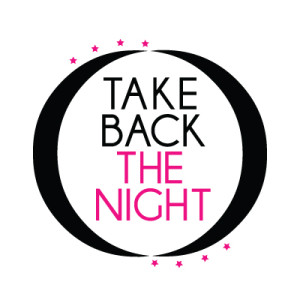Resisting Together: Why We Take Back the Night
I attended the Claremont Colleges’ annual Take Back the Night march on April 9 as a member of Scripps Advocates for Sexual Assault, an on-campus group that runs a 12-hour-a-day crisis warmline, to show support with other advocates and survivors of sexual assault/abuse from the five colleges. We gathered outside Big Bridges as it got dark, making posters and donning t-shirts and ribbons to declare our solidarity with the women’s, trans, and queer rights movements. This year in particular, we wanted to focus on including and engaging diverse groups across gender, sexuality, class, and gender lines in developing a community to support survivors and combat sexual violence. We were marching not only to raise awareness of these issues, but also to provide a safe space for people to feel legitimized in their experiences and to show people that we take these problems seriously and that there is a community supporting them if they want to share their stories and find resources. Take Back the Night is a movement to empower ourselves in the face of a culture that does its best to silence us. The march wound its way across all five campuses, and people stopped what they were doing to come outside to watch us and hear our chants of “Claim our bodies, claim our rights, take a stand, take back the night.”
Take Back the Night is an organization that has held marches around the world since the 1970s. The event was hosted by URGE of the Claremont Colleges, BLOC, Advocates from Scripps, Pomona, and Pitzer, Las Claremont Senoritas, TIXC, SAS, Empowered Latin@s in Action, the Queer Resource Center, and FemCo, and was cosponsored by PAct, PEC, and Chicano/Latino Student Affairs. According to the Take Back the Night website, “1 in 3 women and 1 in 6 men worldwide experience some form of sexual violence. Less than 50% of victims report these crimes.” A 2010 report by the US Center for Disease Control stated that approximately 22% of black women, 18% of white women, 14.6% of Hispanic women, and 26.9% of American Indian or Alaska Native women have experienced rape in their lives, and the numbers are even higher for sexual violence other than rape. Less than 50% of survivors report their assaults. Sexual assault affects people across gender boundaries as well. Most studies, according to Rape Response Services, show that about 50% of transgender people experience sexual violence in their lifetime.
The violence against survivors continues even after the assault. We live in a culture of victim blaming that tells us not to get raped, rather than not to rape others. Our culture tells us not to dress provocatively, not to drink too much at parties, and not to go out late at night. When we do these things, we are “asking for it.” In courts across the world, these excuses are used to legitimize rape, and media tends to side with the perpetrators, lamenting over their ruined futures in the face of conviction. Survivors are not being taken seriously when the rape could not be 100% proven, and colleges across the nation including Dartmouth, University of Montana, Harvard, Yale, Vanderbilt, Florida State, Grinnell, Columbia, and University of Virginia have confirmed the difficulty and unwillingness to convict alleged perpetrators.Take Back the Night is a demonstration against these excuses and against a culture that effectively denies the right of women, queer, and transgender people to go about their lives freely, without their actions being constrained by a constant fear of assault.
While raising awareness itself through methods such as Take Back the Night is not enough to fix the problem, it is an important first step to bring these issues to light and to raise awareness of these injustices and the harmful biases perpetuated by mainstream media. Such awareness, especially through show support through active means such as these kinds of events, can help us build our community, deal with such injustice, and work to change the victim-blaming dialogue around sexual violence. By building these communities, we will be able to support survivors not only by changing the culture of violence, but also through developing resources to help survivors cope with or fight this violence. By creating solidarity across cultural lines of class, gender, ethnicity, and sexual orientation, we change the script so that the perpetrator is held accountable for the assault instead of the survivor. We march to promote our own basic human rights to have control over our bodies and live without our every decision being affected by fear of assault. When we take back the night, we challenge a culture that denies these rights and join the movement to create a society that supports and serves all of its people, regardless of race, class or gender.
For support in a situation of sexual assault, call the Scripps Advocates for Survivors of Sexual Assault at (909)-214-2138, 8pm to 8am seven days a week.
Kristen Sibbald
Scr ’17

![[in]Visible Magazine](https://community.scrippscollege.edu/invisible/wp-content/uploads/sites/5/2011/04/Invisible-Masthead-2011-Spring1.png)








Comments are closed.